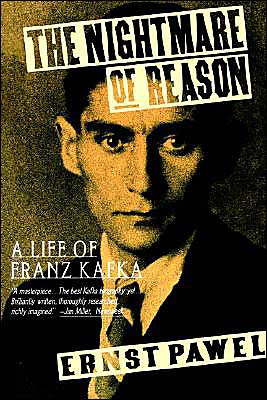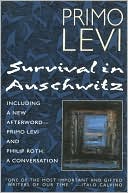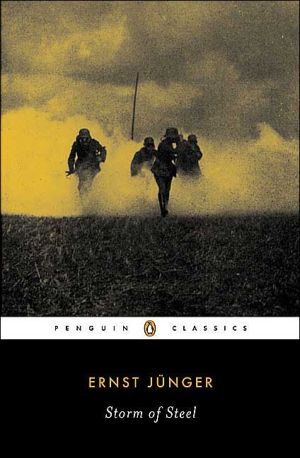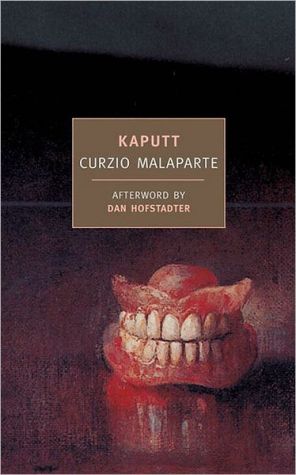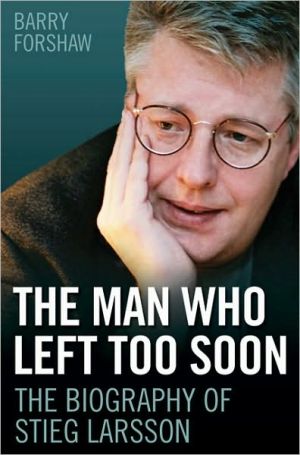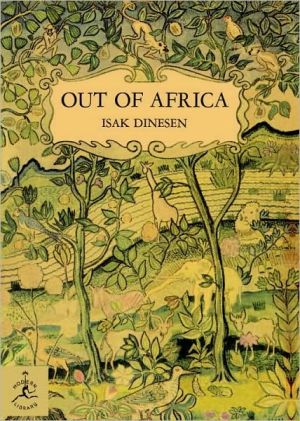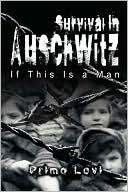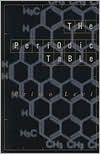The Nightmare of Reason: A Life of Franz Kafka
A comprehensive and interpretative biography of Franz Kafka that is both a monumental work of scholarship and a vivid, lively evocation of Kafka's world.
Search in google:
A comprehensive and interpretative biography of Franz Kafka that is both a monumental work of scholarship and a vivid, lively evocation of Kafka's world.
The Nightmare of Reason\ One\ IN Prague, he is always present but never mentioned, and it comes as a shock suddenly to find oneself face to face with him in the heart of the city—Kafka's brooding features, life-size, cast in black bronze and mounted above eye level on the wall of a drab building on Maisel Street. On this spot, so a small plaque proclaims, stood the house in which the writer Franz Kafka was born.\ It is a modest memorial, conceived in ambivalence and therefore singularly fitting in its way. Commissioned by Communist authorities, designed by the sculptor Karel Hadlik, and unveiled in 1965, at a time when the human face of socialism began to rise above the parapets of Stalinoid concrete, it was intended as the initial stage in Kafka's metamorphosis from decadent nihilist into a revolutionary critic of capitalist alienation. In the summer of 1968, Soviet tanks put an end to liberal illusions, and further efforts at rehabilitating Kafka were suspended. But his presence, once acknowledged, is hard to exorcise in a town where every moment of the day and night recalls his nightmares. The bronze sculpture was left in place, so was the marker on his house in the Alchemists' Lane—concessions to tourism, or one of those Schweikian triumphs of cunning that have kept the Czech cause alive through the ages. Either way, they bear witness to one all-important, fundamental fact of Kafka's existence: that he was born in Prague, was buried in Prague, and spent almost all forty-one years of his life in this citadel of lost causes, the "little mother with claws" that never loosened her grip on him and shaped his vision of the world.\ An uncanny world in which to grow up, still solidly embedded in the Middle Ages, walled in by mystery and legend turned to stone. The view from the Kafka windows stretched back over the centuries, and every walk, every errand took the child through the vaulted archways and twisting alleys of a vengeful past. This was to be his life's stage.Friedrich Thieberger, a renowned Jewish scholar with whom Kafka later studied Hebrew, recounts that "once, as Franz and I were standing at the window looking down on Old Town Square, he pointed at the buildings and said: 'This was my high school, the university was over there, in the building facing us, my office a bit further to the left. This narrow circle ...' and his finger described a few small circles, 'this narrow circle encompasses my entire life.'"\ But long before the town became a concept in the child's mind, long before the physical reality of even his most immediate environment began to register in meaningful and coherent images, he had to find his way in the far more bewildering shadow world of very large, powerful human beings and learn to deal with the dual threat of both their presence and their absence. What Kafka chose to remember about his childhood is highly revealing, though no more so than what he chose to forget. Even a "memory come alive," as he once described himself in one of his last diary entries, tends to be selective in ways determined by beginnings beyond memory—by a real-life mother who unwittingly betrayed him long before her image fused with the symbol of his quest for love, just as the real-life father, with his waxed mustache and drill-sergeant temper, preceded the image of divine omnipotence.\ \ \ Posterity has come to know them only as "Kafka's parents"—such are the perils of raising a writer in the family, especially a writer devoid of conscious hypocrisy. Yet Herrmann Kafka was already thirty-one years old when he became Kafka's father, a demanding role at best, for which he happened to be particularly ill equipped. The very qualities that had enabled him to claw his way out of grinding poverty into middle-class respectability and relative affluence—unself-conscious egotism, brute drive, and a single-minded concentration on money and status—did not make for grace, warmth, and sensitivity in his contacts with people in general. As a parent, however, he suffered from an additional handicap: he himself had never had a childhood.\ His own father, Jakob Kafka, born in 1814, was the second of nine children—six boys and three girls—raised in a one-room shack in the Czech village of Wossek. Under the laws then in force, he was not permitted to marry; a 1789 decree promulgated to curb the growth of the Jewish population barred any but the oldest son of Jewish parents fromobtaining a marriage license, and Jakob had a stepbrother older by a year. What saved him from dying without legitimate progeny—death twice over, in the context of his faith—was the revolution of 1848, or rather its savage repression. By the sort of ironic paradox that crops up with predictable unpredictability throughout Jewish history, the new constitution, designed to strengthen the hand of the autocratic government, brought Jews the very freedoms which the French Revolution and its aftershocks had promised but largely failed to deliver.\ In granting full citizenship rights to the roughly 400,000 Jews within the empire—including the right to marry at will, to settle in the cities, and to enter trades and professions—the Habsburg bureaucracy was moved not by humanitarian impulses but by political and economic considerations. The business skills and energy of peddlers, moneylenders, and craftsmen were an untapped resource invaluable to a country on the verge of industrialization, and the Jews' peculiar, cohesive, but supranational allegiance made them a potential counterforce to the radicalism of contending nationalities that threatened the survival of the multinational state. But all that mattered to Kafka's grandfather Jakob, in 1848, was that at last he could marry, and he proceeded to do so at once, taking as his wife the daughter of his next-door neighbor.\ A kosher butcher by trade, Jakob Kafka was a surly giant of a man, reputedly able to lift a bag of potatoes with his teeth, but all his backbreaking labor never netted him more than the barest subsistence. His wife, Franziska Platowski, already thirty-three when she married, had an outgoing and cheerful disposition that, under the circumstances, should have qualified her for sainthood. Between 1850 and 1859, she gave birth to six children and raised them all in that one-room shack, in abject poverty; for long stretches, the family's diet consisted of little more than potatoes.\ Somehow they survived—the parents as well as all six of their children—itself a rare feat in its day, and evidence of robust genetic equipment. (The shack itself, though, still inhabited after the Second World War, outlasted them all.) The children were put to work as soon as they were strong enough to pull a cart. Summer and winter, in any kind of weather, they had to make the rounds delivering slabs of meat to Jakob's far-flung clientele. The frostbites and footsores that Herrmann, the second-oldest, suffered as a result became his battle scars; he kept regurgitating the inventory of his childhood privations with a mixture of pride and self-pity which his own son in turn found singularlyrevolting. In fact, the perennial paternal litany, half boast and half accusation, of "You don't know how well off you are ... When I was your age ..." loomed large on the list of grievances Kafka hoarded against his father.\ This sniping across the generation gap is common enough. But in contrast to so many fathers licking their imaginary wounds, Herrmann did not have to invent or exaggerate the hardships of his youth in order to score points, and no one saw this more clearly than the target of his scorn. In "Josephine, the Singer," Kafka's last story, written on his deathbed, he evokes the world in which his father came of age:\ Our life [he wrote, referring to Josephine's "nation of mice"] simply happens to be such that a child, as soon as it can get about a little and is to some extent able to find its way in the world, must take care of itself just like an adult. We are, for economic reasons, scattered over too large an area, our enemies are too numerous, the dangers that everywhere lie in wait for us are too unpredictable—we simply cannot afford to shield our children from the struggle for existence; to do so would doom them to an early grave. But one additional reason should be cited, this one hopeful rather than depressing: the fertility of our tribe. One generation—and each is immensely populous—crowds the other; the children have no time to be children ... no sooner has a child made its appearance than it is a child no more; other children's faces press in from behind ... rosy with happiness. Yet however charming this may be, and however much others may rightly envy us for it, the fact remains that we cannot give our children a true childhood.\ The ancestors of both Jakob and Franziska had for at least a century lived in Jewish enclaves surrounded by a Czech peasant population. Unlike most of their coreligionists, forced by a 1787 decree to adopt German surnames, they had—presumably by special dispensation—chosen Slavic names; the Kafkas, at any rate, always assumed that their family name derived from kavka, the Czech word for "jackdaw," although Jakovke, a Yiddish diminutive for Jakob, is another and not unlikely derivation.\ The Kafkas spoke Czech at home but, like all Jews, sent their children to the Jewish school—schools were denominational, a six-year attendance compulsory for boys—where, by law, German was the language of instruction. Herrmann did his compulsory stint, the full extentof his formal education, and became fluent in spoken German, though he never quite mastered the intricacies of the written language and, to the end of his life, evidently felt more at home in Czech.\ At fourteen, one year into manhood under Jewish law, he left home for good to make his way in the world. Despite stiff competition, the young peddler survived on his own. Retail distribution in rural areas was still in its infancy, while the increasing volume and variety of manufactured goods—especially in Bohemia, cradle of the nascent industry —required domestic outlets. The Jewish peddlers thus filled a growing need, and many of them laid the foundations for what in later years became respectable fortunes. Some switched to manufacturing; Franz Werfel's father came to own the largest glove factory in Bohemia, Freud's father had a textile plant in Moravia. Others progressed from moneylending to high finance or, like Herrmann Kafka, expanded into the retail and wholesale business.\ Altogether, the economic position of Austro-Hungarian Jewry in the second half of the nineteenth century improved rapidly. The manifest success of the "founding fathers," however, ought not to obscure the merciless struggle it took to rise from well below bare subsistence to even the relatively modest heights eventually scaled by a Herrmann Kafka. The attitudes and opinions shaped by this experience came to dominate Jewish middle-class life to the end. But even more significant was the preponderance of certain personality traits favoring survival in the ruthlessly competitive world of emerging capitalism, a natural selection that made for a remarkable degree of uniformity in the pattern of their family relations.\ No one defined and explored that pattern more creatively than Sigmund Freud, himself a child of that same time and place—born at Pribor, Moravia, the son of a textile merchant who went bankrupt as a result of the Czech anti-German and anti-Jewish boycott and moved his family to Vienna in 1859, when Freud was three years old. The world that shaped Freud's vision, the rising Jewish middle class in nineteenth-century Austria, was also the world of the Kafkas, and the almost paradigmatic nature of the oedipal conflict in that family, the often startling literalness with which Kafka himself seemed to be acting out the Freudian script, no doubt owes much to these common antecedents.\ Psychoanalysis, not least for that very reason, has contributed highly pertinent insights to an understanding of Kafka's character and work.But our ultimate concern is not so much with the ways in which he typified all sons locked in mortal combat with their fathers as with the ways in which he was different and unique: how he came to be Franz Kafka.\ \ \ For six years, young Herrmann traveled the byways of rural Bohemia and Moravia. In 1872, at the age of twenty, he was drafted into the Austrian army, served the prescribed two years, during which he was promoted to sergeant, and after his discharge headed for Prague to seek his fortune.\ The removal of residence restrictions in 1848 had triggered a mass migration of Jews from country to city. To a landless population, subsisting on the margins of an impoverished agricultural economy, the city was the new Jerusalem, the promise of the good life. To the Jews, moreover, increasingly victimized by anti-Semitism, the city also offered such safety as lies in numbers and in anonymity. Within mere decades, the rural ghettoes were deserted, and villages such as Wossek had to close their synagogues for lack of a minyan.\ Herrmann settled in the decaying slums of the Josephstadt, Prague's teeming medieval ghetto, with its string of bordellos and sleazy dives. It was not the most propitious of times for a young man without funds or connections. The Vienna stock-market crash of 1873 closed out two decades of unprecedented boom and signaled the onset of what turned out to be a tenacious and long-lasting depression. But the twenty-two-year-old army veteran, accustomed to hardship and frugal in his habits, was determined to find ways of starting a business of his own. It took him eight years. He got his chance in 1883, when he married the daughter of a wealthy brewery owner.\ \ \ His bride, Julie Löwy, was born on March 23, 1856, in Podebrady, a predominantly Czech town on the river Elbe. Her ancestry included an unusual array of remarkable or at least unconventional characters, deeply religious for the most part and far more concerned with metaphysical pursuits and spiritual values than with the accumulation of worldly goods—Talmudists, miracle rabbis, eccentric troublemakers,Christian converts, and visionaries. In a brief autobiographical sketch written in 1911, Kakfa alluded to this exotic heritage:\ My Hebrew name is Amschel, after my mother's maternal grandfather, whom my mother—she was six at the time of his death—remembers as a very pious and learned man with a long white beard. She remembers how she had to hold on to the toes of the corpse while asking his forgiveness for whatever wrongs she may have done him. She remembers her grandfather's many books lining the walls. He bathed in the river every day, even in winter, when he had to chop a hole in the ice. My mother's mother died before her time of typhoid fever. Her death so affected the grandmother that she became melancholy, refused to eat, spoke to no one, and, one year after her daughter's death, went out for a walk and never returned; they pulled her corpse out of the Elbe River. Even more learned than my mother's grandfather was her great-grandfather, equally renowned among both Christians and Jews. Once, during a conflagration, his piety worked a miracle; the flames spared his house while devouring all the others around it. He had four sons; one converted to Christianity and became a physician. All of them died young, except for my mother's grandfather. He had one son, whom my mother knew as Crazy Uncle Nathan, and one daughter, my mother's mother. [DI, 12/25/11]\ The extent to which personality traits are inherited may be a matter of controversy, but Kafka himself never had a doubt about the mother's bloodline being the dominant strain in his makeup. It was one of the very few issues on which, after a fashion, he saw eye to eye with his father; Herrmann, too, blamed the constitutional taint endemic among his wife's maternal ancestors for his son's unworldliness and lack of drive.\ They were, nonetheless, the only ancestors whom Kafka acknowledged as such. The sainted great-grandfather and namesake Amschel, or Adam, Porias was born at Podebrady in 1794 and died there in 1862. A rabbi and Talmudic scholar, he had the reputation of a holy man among both Jews and Gentiles. Unfortunately, the odor of sanctity is frequently toxic to those too close to its source. His son Nathan, born in 1824, was considered mad; his wife, Sarah, committed suicide in 1860; his daughter Esther, born in 1839, was married off to the textile merchant Jakob Löwy and died of typhoid fever at twenty-nine, afterhaving given birth to three children—Alfred, Joseph, and Kafka's mother, Julie.\ Julie was three when her mother died. Her father remarried with unseemly haste and had three more children, Julie's half-brothers Richard, Rudolf, and Siegfried; the panoply of ostentatiously Teutonic names suggests the distance Jakob Löwy had already put between himself and his Orthodox upbringing. He was a typical member of the new Jewish middle class, resolutely assimilationist, staunchly German in language and outlook, pro-emperor in politics. Already quite wealthy in Podebrady, he sold his brewery at a profit and moved to Prague, where he again prospered in the same business.\ But despite the relative affluence of her home, Julie's childhood was also a difficult and unhappy one. Her stepmother, a distant Porias relative, was no replacement for a real mother, and Julie, as the oldest of six children and the only female, grew up as a Cinderella of sorts, maid to her father's wife and surrogate mother to the five boys, hardworking and competent in everything she did. It earned her trust and affection from everyone but her parents; she was, however, modest in her expectations, never complained, and altogether learned to keep her feelings to herself.\ Yet hiding behind this screen of brisk competence was an enormously warmhearted woman, capable of giving much love and equally desperate to receive it. Long before she was married, the five brothers she had helped to raise had flown the clammy coop and scattered all over creation: Alfred eventually became director general of the Spanish railways in Madrid, Joseph founded a colonial trading corporation in Paris, Richard settled in Prague as a clerk, Siegfried—Kafka's favorite uncle—spent his life as a country doctor, and Rudolf, an accountant in a Prague brewery, converted to Christianity. Only Joseph and Richard ever married; the others remained lifelong bachelors. But though they drifted apart and later had no use for one another, all of them remained in close touch with their only sister and mother substitute.\ Affectionate and generous she was, from all accounts. But what her firstborn needed, by way of affection, far exceeded the demands of even the closest relatives and friends. As a mother, Julie no doubt did her best; but having never been mothered herself, her best was a kind of corseted tenderness that must have felt like ice to the touch.\ She was already twenty-six at the time of her marriage, still living with her parents in the stately Smetana Mansion on Old Town Square,a challenge to every matchmaker and meddling relative in Prague. There is no record of how she and Herrmann Kafka got together, but like most marriages in their circles, theirs was probably not made in heaven but put together as a business deal. That Julie, unlike her own mother, had a say in the choice is likely; the emancipation of women, though lagging behind that of the Jews, had made some slow progress. Whether she loved Herrmann, on the other hand, was hardly the sort of question she would have asked herself; you did not marry the man you loved, but loved the man you married. Marriages endured, because women endured marriage. Julie endured. Every so often she lapsed into "weeping spells and melancholy"—bouts of probably clinical depression—but she endured.\ Socially, Herrmann was not her equal. The line between the German-speaking, urbanized, middle-class Jews and their Czech-speaking, semiproletarian country cousins, while still fluid, already marked a gap defined by considerable snobbery. But Herrmann, at thirty, had assets that made up for lack of money and social standing: a broad back and a nimble if uneducated mind, the proven capacity to take care of himself in a rugged world, and, above all, a strident, irrepressible, infectious vitality.\ That they were also two very lonely people deprived of their childhood, scarred orphans in search of a home, may not have been apparent to them, then or later. But it probably accounts for their lifelong intimacy in a partnership that defies the paltry stereotypes of a happy marriage.\ The wedding took place in Prague on September 3, 1882, at the elegant Hotel Goldhammer on Old Town Square, just a few steps from the historic 500-year-old building in which the newlyweds began their married life.\ "Na Vže" (At the Tower) straddled the border between two worlds. A massive structure at the corner of Maisel and Carp Streets, it formed the extreme tip of the Jewish ghetto, jutting out into the heart of Hussite Prague, its back against the Russian Orthodox St. Nicholas Church, its front facing a notorious underworld bar and a string of bordellos. Originally the residence of the town scribe, it was acquired in 1629 by the Strahov monastery, turned into a theater in the eighteenth century, and, in the late 1870s, subdivided into a warren of small apartments, in one of which Herrmann Kafka and his bride spent the first two and a half years of their marriage. "Na Vže," along withmost of the medieval ghetto slums, was razed around the turn of the century in one of the few large-scale urban renewal projects ever to be carried out in Prague. One of its portals, however, survived and has been incorporated into the otherwise nondescript building that now displays Kafka's bronze likeness.\ By the end of the year, Herrmann had opened his first dry-goods store, and Julie was pregnant. On July 3, 1883, at home and with a midwife in attendance, she gave birth to a healthy boy. He was named Franz, in honor of the Emperor Franz Joseph, and a physician performed the circumcision on July 10.\ \ \ As a setting for the birth of Franz Kafka, the ancient mansion-turned-tenement crumbling in a wedge-shaped no-man's-land between hostile cultures could hardly have been more appropriate, though this was certainly not the way his young parents felt about the place. Bent on getting ahead, rising up in the world, and giving their children a better start in life, they saw in the Tower not a romantic abode but a dilapidated dump in a disreputable and noisy neighborhood from which they were eager to escape as soon as they could afford it.\ Franz spent the first two years of his life in this eerie place; what, if anything, it contributed to the infant's inchoate awareness of the outer world is anybody's guess. In all likelihood, those first images merged with the pervasive gloom of the family's later habitations in somewhat less disreputable but none too dissimilar vestiges of medieval monumentalism, prison-like structures with dank walls and dark hallways, with primitive plumbing, musty rooms, coal-burning tile stoves, the smell of cabbage and unaired bedding, and the skitter of ghosts beyond the circle of candlelight sounding suspiciously like rats on the warpath.\ A depressing environment, but quite the norm in Prague's Old Town. The Tower itself was officially condemned soon after Kafka's birth, along with most of the Josephstadt. The crime-ridden slums of the ancient Jewish ghetto were undoubtedly an unhealthy place for ordinary human beings; yet one suspects that what finally prodded the bureaucracy into uncharacteristically decisive action was the threat to public order rather than to public health. Even so, the actual demolition was deferred for a number of years, and the Tower did not come down till the turn of the century.\ In May 1885, meanwhile, the Kafka family had moved to Wenceslas Square. Now the very heart of Prague, it was even then the main thoroughfare of a tense provincial capital and, as such, the perennial stage for mass protests and demonstrations. Whether this was what troubled the Kafkas—many of the demonstrations tended to get out of hand and turn into anti-Jewish riots—or whether they had simply overreached themselves is not known. But in December of that same year, the restive couple moved back to the familiar surroundings of the Old Town. They were to change residences four more times before settling at last, in June 1889, in the House Minuta, again off the Old Town Square, where Kafka, about to turn six, was to spend the next seven years of his childhood.\ The House Minuta—"Minute" in Czech, though the derivation may be Latin; for once, neither history nor legend offers a clue to the significance of the name—juts out at a right angle to the Old Town Hall and separates Old Town Square from the Little Square. Built during the sixteenth-century Bohemian Renaissance, the essentially Gothic features of its original architecture were gradually submerged in successive renovations. But a more expert attempt at historical restoration, undertaken some years after Kafka's death, uncovered a series of wall frescoes, elaborate Florentine graffiti that now once again grace the two façades. They have become a landmark feature of the tourist circuit, just a few steps from the famous Town Hall Clock, with its hourly procession of the Twelve Apostles, followed by a fittingly grim reminder that the Reaper, scythe in hand, has gained yet another hour on the living.\ \ \ To the end of his days Kafka felt that his childhood had crippled him, rendered him unfit for life among the living. Objectively, the circumstances in which he grew up did not materially differ from those generally prevailing in most of Prague's Jewish middle-class homes. But unhappiness, for one thing, is a profoundly subjective experience linked only tenuously to objective reality. And for another, the fragmentary facts known about Kafka's life during his preschool years, from 1883 to 1889, offer at least some clues to the dread and anguish of a childhood which he never quite outgrew.\ From the very beginning, life in this family, as organized by, around, and for the benefit of the Lord and Master, focused not on the homebut on the store. Within a few years, and in the midst of a severe and persistent recession, Herrmann managed to expand the small retail haberdashery he had opened at the time of his marriage into a thriving wholesale dry-goods business. His own childhood had taught him what he could never hope to teach his children—that money is the root of all success. He knew that man doesn't live by bread alone; but without bread he does not live. And if money cannot buy happiness—a startling discovery made by the next generation—it does buy bread as well as butter, decent clothes, shelter, and even books. What is more, money—given enough of it—will not only buy creature comforts but transform the creature into a man of substance and social significance.\ Herrmann set out to succeed, with a single-minded, driving determination that left no room and little time for anything else in his life. This was particularly true during the difficult first years in a new business, which coincided with the infancy of his son. Franz seldom got to see his father, though he heard him more often than he cared to, then or later. The booming parade-ground voice of that distant divinity, its ear-splitting vulgarity and thunderous threats, helped to stoke fantasies that never quite yielded to the prosaic image of the real-life father. It also left Franz with a lifelong morbid sensitivity to noise.\ Since everything in the Kafka household revolved around the struggle to get ahead, it seemed only natural for Julie also to be devoting herself to the business. With thousands of peasant girls flocking to the cities, household help and baby nurses were no problem. But Julie did more than just help out. A rare combination of competence and tact soon made her indispensable to a husband who was astute and indefatigable in his work but uncouth and quick-tempered in his dealings with both customers and employees.\ The fact that the children were essentially brought up by maidservants and, later on, governesses again merely followed a common pattern. Julie, however, was not just physically absent; she was unavailable to Franz in much more fundamental ways. She served her husband with the same obedient devotion with which she had helped her stepmother run the household, and for much the same reasons. Being helpful, being needed, a helper, a helpmate, had early on become her way of reaching out for love or at least approval—hardly the sort of response to be got from an infant. In fact, in later years, with her children come of age, this same trait proved admirably suited to her role of matriarchal peacemaker, dispenser of common sense, chamomiletea, and emotional support, who defused and defanged paternal wrath and meddled with discreet motherly concern in the affairs of her children. But as long as they were small, she kept her distance and instead hired help to provide for their physical care.\ In the early years of marriage her maternal instincts must, in any case, have been severely strained by her husband's ceaseless demands for attention and sympathy. She worked for him during the day, she listened to his grumbling and grousing, and she played cards with him almost every night throughout their forty-nine years of married life. They met each other's needs, as solid a foundation for marriage as any. Unfortunately, neither quite met the needs of their children. Since these needs varied greatly, the consequences were quite different for each of them, but it seems clear that Franz, the firstborn, was by far the most deprived and the most severely affected.\ Having to choose between rival demands on her time and attention —which, for Julie, was what love came down to, at that stage—she never gave her husband reason to complain, then or later.\ She loved you too much [Kafka wrote to his father years later, picking at the scabs of his childhood], she was too loyally devoted to you to act for any length of time as an independent spiritual force in the child's struggle. The child's instincts in this matter proved correct, by the way; over the years, Mother became ever more closely tied to you. Where she herself was concerned, she always maintained her independence, strictly within the narrowest of bounds, but beautifully and delicately, without ever basically hurting you. Yet as the years passed, she came to adopt your judgments and condemnations of the children ever more blindly and completely, a matter not so much of reason as of feeling.\ What the adult could not recapture was the helpless rage of the abandoned infant spilling over into fear and hatred, directed not at the mother who failed him but at the rival who was stealing her and beating him out in an unequal struggle. At age thirty-six, he could still complain that "as a young child I lost the battle against my father, but all through these years, ambition wouldn't let me leave the battlefield even though he still keeps beating me time and again" (DI, 12/2/21).\ The image, here, of the stereotypically oedipal constellation, that once revolutionary concept long since ossified into a schematic platitude, is almost too pat for comfort. But the basic triangular relationshipin the Kafka household soon evolved into a much more complex configuration with the births, at two-year intervals, of Franz's two brothers. Georg was born in September 1885; he died of measles in the spring of 1887. In September of that same year, Julie again gave birth to a boy; half a year later—in April 1888—Heinrich died in turn, the victim of otitis.\ \ \ Curiously little attention has been paid to these deaths and their effect upon the surviving child. The reason, no doubt, is the manifest attitude of the survivor himself, whose few glancing references to what must, after all, have been a major tragedy in his home and in his childhood are consistently flat, factual, and devoid of affect.\ Kafka was four the year Georg died and Heinrich was born, almost five at the time of Heinrich's death, an age at which an intelligent and uncommonly sensitive child would have to be aware of his parents' reaction, if nothing else. That the effect on the young mother was devastating can be taken for granted; but the loss, within a year, of two of his three children—male children, at that, the times and attitudes being what they were—must have been a severe blow for the father as well. It seems inconceivable that the grief of his parents, barely recovering from one death only to be struck by a second, could have been lost on the five-year-old and, once again, only child. And the fact that this particular tragedy never became part of the "memory come alive" makes it not less but, on the contrary, potentially far more significant than any conscious recollections.\ Repression is an effective but highly dangerous mechanism of defense, a slow-acting poison. Like any firstborn and still-dependent infant, Kafka must have been wildly resentful at the intrusion of two more rivals for his mother's attention. No angel yet in anyone's book, gifted with more than his share of turbulent intensity, he must have wished them out of his life, done away with them in primitive fantasies of murder by magic, and struggled with the guilt and fear which, in the normal course of events, mark the genesis of human conscience.\ But events did not take a normal course. His fantasies came true, so that the death of his two baby brothers left him with a burden of guilt too heavy ever to acknowledge.\ Copyright © 1984 by Ernst Pawel
